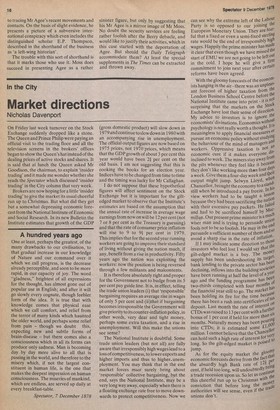A hundred years ago
One at least, perhaps the greatest, of the many drawbacks to our civilisation, to that gradual increase in our knowledge of Nature and our command over it which we call progress, is the decrease already perceptible, and soon to be more rapid, in our capacity of joy. The word "gladness," brightest of all expressions for the thought, has almost gone out of popular use in English; and after it will go slowly every cognate, though feebler form of the idea. It is true that with knowledge comes that physical ease which we call comfort, and relief from the terror of many kinds which haunted the older world, and perhaps some relief from pain — though we doubt this, expecting new and subtle forms of brain-disease — but there comes also a consciousness which in all its forms can produce only sadness. Man is becoming day by day more alive to all that is passing in the world, and therefore to the misery which, if not the largest constituent in human life, is the one that makes the deepest impression on human consciousness. The miseries of mankind, which are endless, are served up daily at every breakfast-table.
Spectator, 7 December 1878














































 Previous page
Previous page